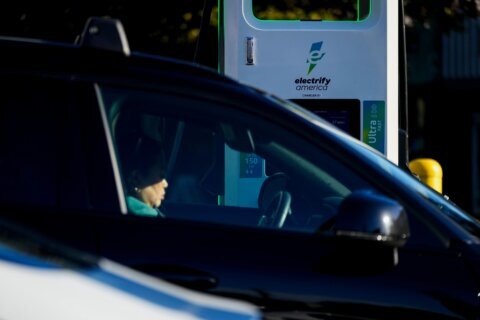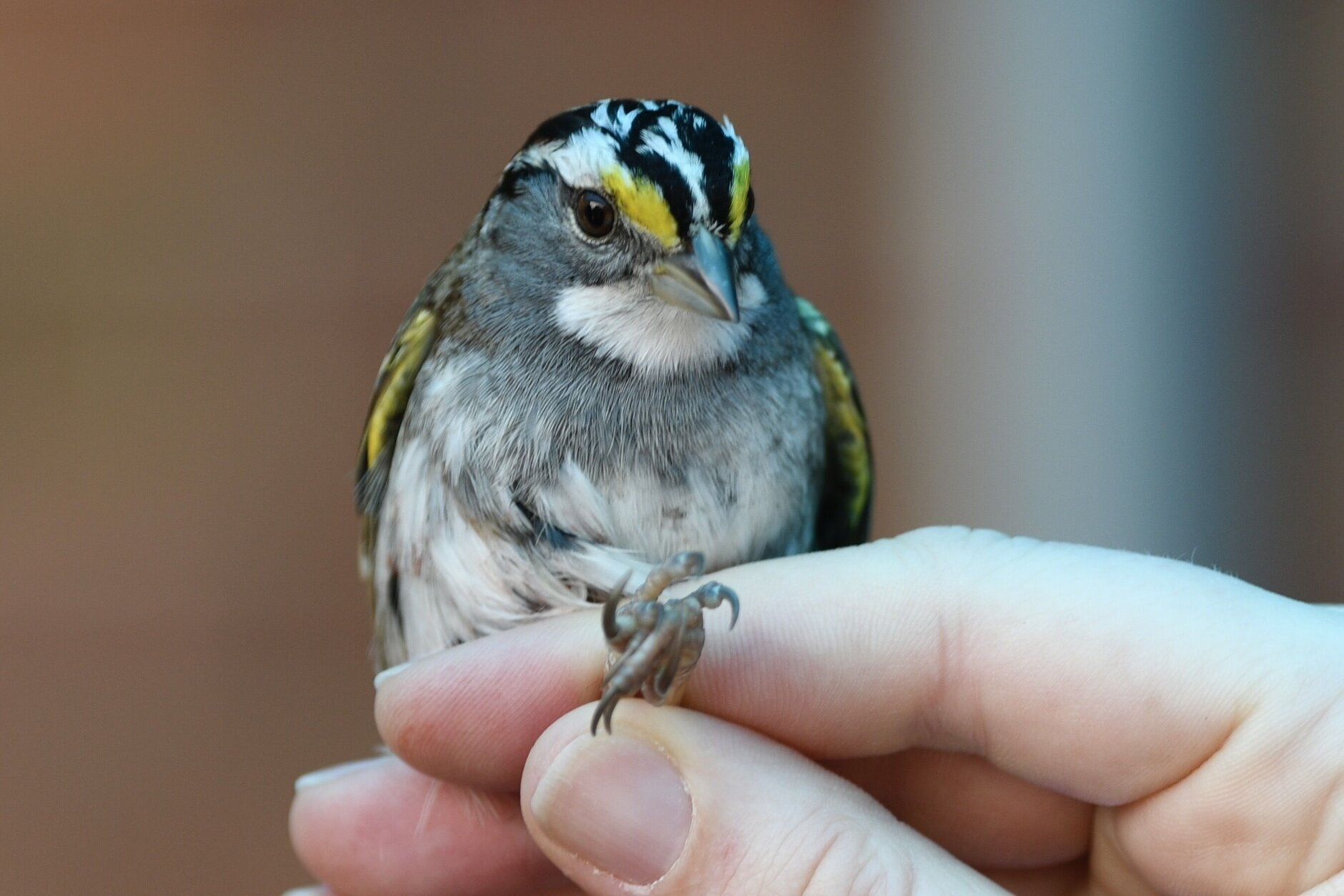
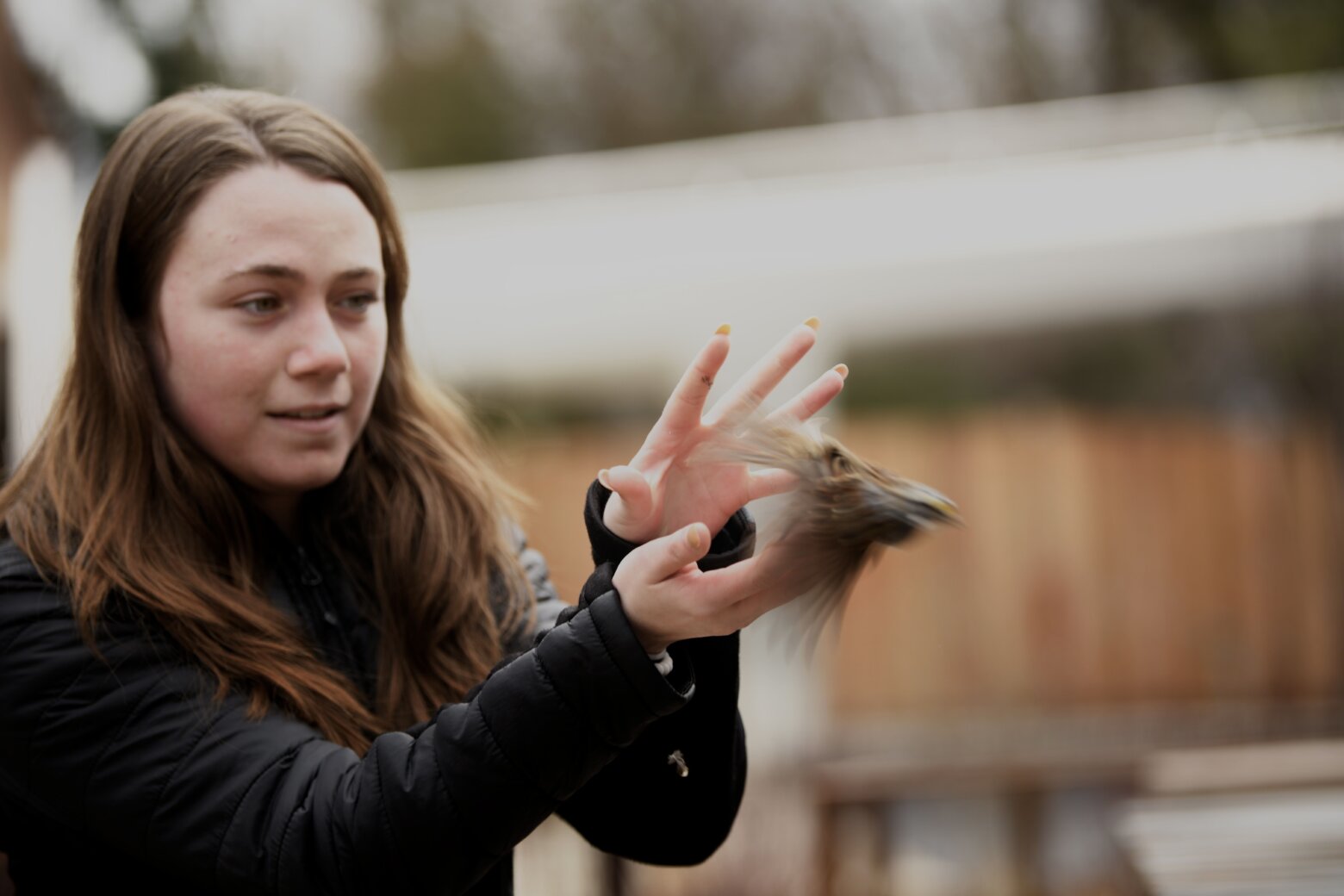
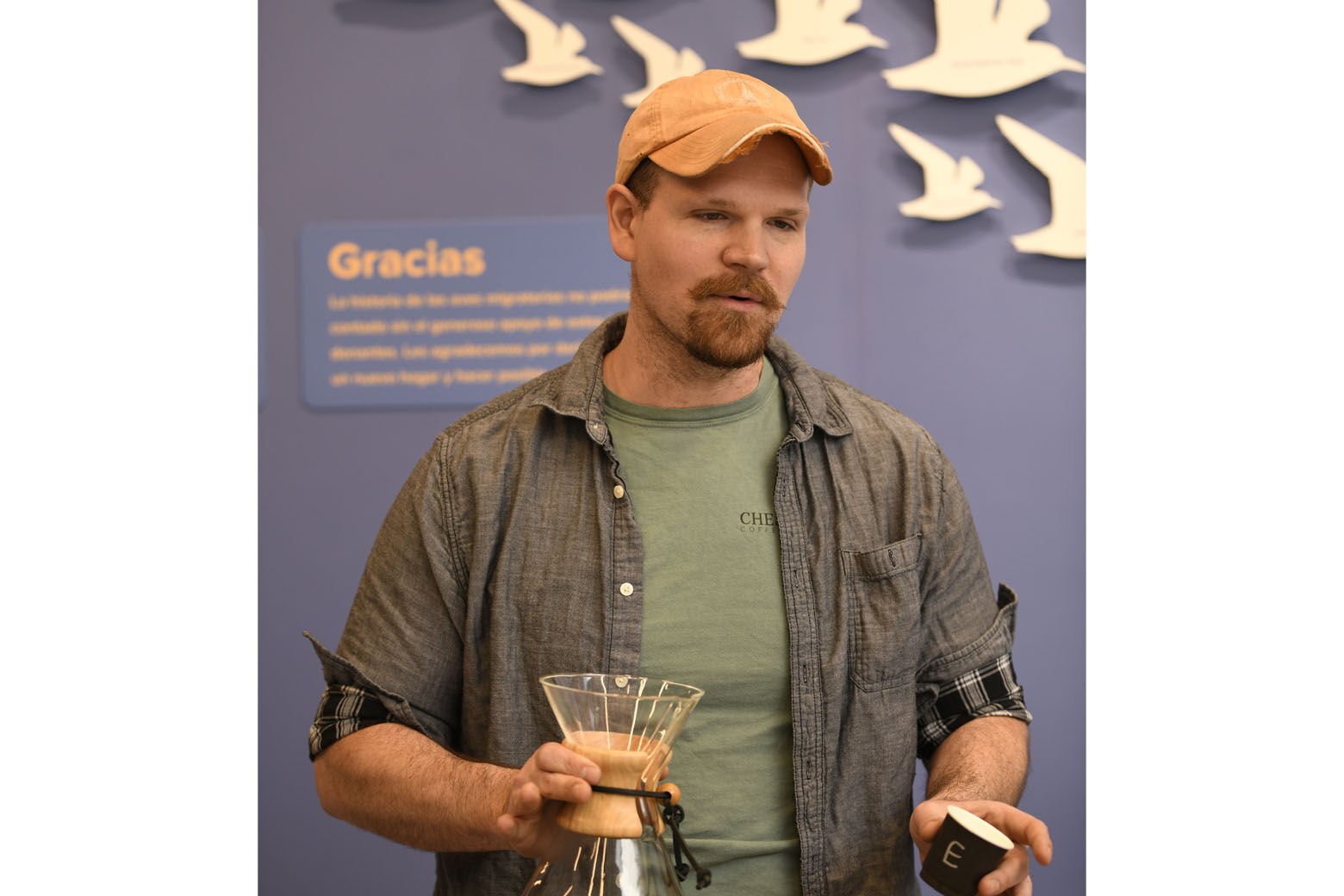
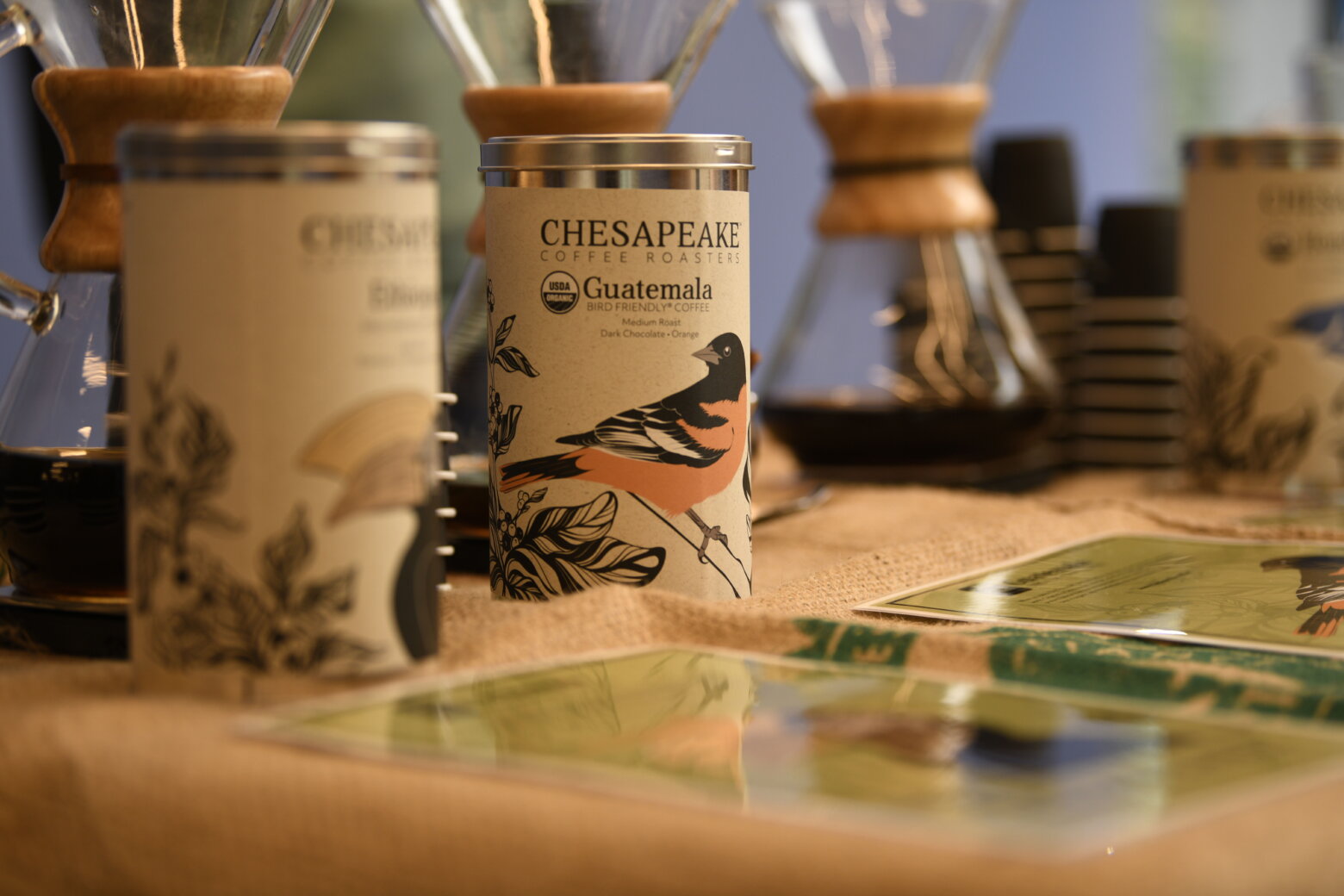
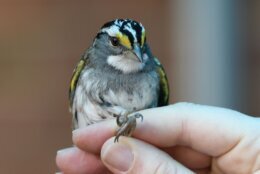

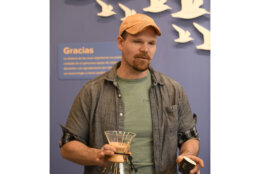

Starting Monday, you can visit Northwest D.C.’s Smithsonian National Zoo and its newly renovated Bird House — all you’ll need is a free ticket to enter.
The six-year, $69-million project features more than 70 different bird species in aviaries where the birds can swim, fly and waddle freely.
In one exhibit, visitors can even get their hands on binoculars for an up-close view of the smaller birds that love to flit among the treetops in the aviary that mimics a bird-friendly coffee farm.
At a recent preview of the Bird House, migratory bird ecologist Brian Evans gave a bird-banding demonstration, explaining how the practice helps biologists learn about migration patterns and how bird populations are doing overall.
Sarah Long, an intern from American University, assisted Evans in the demonstration, releasing the white-throated sparrow after it had been banded.
It was Long’s first time holding a wild bird. “We’ve been studying the birds in the aviaries, but we’ve never gotten that close, and certainly never touched them,'” she said.
She told WTOP it was exciting to be able to hold the tiny bird, and noted how soft and fragile it felt in her hands. “And you realize, ‘oh, goodness I hope I’m not hurting it,'” she said.
Long confessed her favorite birds are ducks, and of those, she favors the black-bellied whistling duck. You can spot them in the coffee farm aviary.
“I love them!” she said. “They’re always in the same corner, so they’re really easy to identify, and I love ducks — they’re so cute,” she said with a laugh.
Evans said the opening of the Bird House is “huge.”
“We know we’re in a time of serious bird decline,” he said, referring to the 2019 study that estimated a loss of 3 billion birds in the United States and Canada over a period of 50 years. But the reopening of the Bird House, which had been closed for renovations, leaves him “super optimistic” that more people will get involved in conservation efforts.
The Bird House, with its immersive habitats lets visitors see migratory birds up close. Evans said visitors can learn about the birds and ways they can help fight the loss of bird populations.
“Like putting our cat inside.” It’s been estimated that domestic cats kill as many as 2.4 billion birds every year.
Even enjoying coffee can be a bird-friendly action, according to zoo officials. More than 70 North American bird species spend their winters in coffee and cocoa plantations, and when those operations clear out native trees to maximize space for agriculture, the birds lose critical habitats.
During the pre-opening event, the National Zoo invited a coffee roaster to come and brew bird-friendly coffee for taste-testing.
Tony Barnett of Chesapeake Coffee Roasters in Maryland tended to the pour-over coffees. To get bird-friendly certifications, he said, coffee growers have to make sure there are a certain number of native tree species in the area. That ensures “that it has the multiple canopy layers that bird species require to go down there to live and mate, and have all of these necessities for life,” he said.
In order to help the birds adjust to having visitors in their living space, free timed-entry passes will be required at the Bird House for the first several months. Same-day passes will be available on-site at the Zoo.


